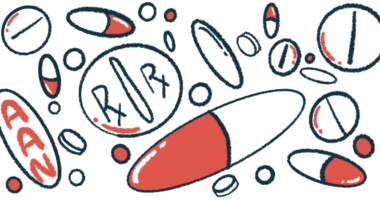FDA Grants Orphan Drug Designation to Pridopidine

g0d4ather/Shutterstock
The U.S. Food and Drug Administration (FDA) has granted orphan drug designation to Prilenia’s pridopidine for the treatment of amyotrophic lateral sclerosis (ALS).
The decision follows a recent positive opinion from a branch of the European Medicines Agency recommending the treatment be given orphan drug status in Europe. A decision by the European Commission is expected soon.
Orphan drug status is awarded to promote the development of treatments for rare and serious diseases. The designation comes with certain benefits and incentives, such as assistance in clinical trial design, tax credits, and fee waivers, as a period of marketing exclusivity (seven years in the U.S. and 10 in Europe) upon regulatory approval.
“We are pleased to have been granted orphan drug designation by the FDA for pridopidine for the treatment of ALS,” Michael Hayden, PhD, CEO and founder of Prilenia, said in a press release. “This marks significant progress towards our goal of advancing pridopidine to address the unmet medical need for ALS.”
Pridopidine is a compound designed to protect nerve cells against injury by binding and activating the sigma-1 receptor (S1R). It currently is being investigated in the HEALEY ALS platform trial (NCT04297683) in the U.S.
The binding to S1R activates cellular mechanisms that support the survival and function of nerve and glial cells, a type of nerve support cell. Studies in
ALS preclinical models have shown it prevents neuronal cell death, boosts the connections between neurons, and preserves motor function.
Pridopidine is one of the four therapies included in the HEALEY ALS platform trial. Platform trials are designed to evaluate several treatments at the same time to speed the development of those most promising, while significantly reducing costs.
A total of 160 participants with sporadic or familial ALS are being recruited for pridopidine’s arm of the trial (NCT04615923). They will be assigned randomly to receive either 45 mg of pridopidine or a placebo, twice daily for 24 weeks (about six months).
Enrollment for pridopidine and other study arms is ongoing at 54 sites across the U.S.; more information is available here. Results are expected in the third quarter of 2022.
“Pridopidine is an exciting compound that offers potential disease modifying treatment for patients with ALS,” said Jeremy Shefner, MD, PhD, lead investigator for the pridopidine trial arm. “Orphan drug designation will speed development and simplify the approval pathway should efficacy be demonstrated in ongoing trials, which will be good news for patients with ALS.”
Pridopidine also is being investigated as a potential treatment for Huntington’s disease in a global Phase 3 clinical trial. It also has an orphan drug designation for that indication in the U.S. and Europe.







